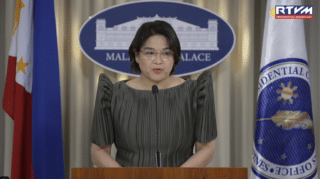This is to express a shared observation with Joel Ruiz Butuyan (“Crisis of illiteracy (2),” 2/3/2020), who opined about the “‘No Child Left Behind’ policy in our public schools that’s being implemented in a distorted way, resulting in a dumbing down in the quality of education in our public schools.”
Indeed, as a college assistant professor (mainly in social sciences) for some 12 years now in various state and private colleges and universities, I have always been piqued by the brazen “unspoken” policy of school administrators imposing upon teachers a “marching order for them to exert every effort to make all students pass,” in a negative sense (my take).
This unspoken policy often comes in the form of being “compassionate” on the parents who must financially foot another semester of tuition when the failed student has to retake a course or two. Often, too, when a near-majority of the students in a class fail, the blame then lies on the shoulders of the teacher who must have failed or have been neglectful of his/her teaching duties.
This happens in spite of the availability of class records showing that students have incurred excessive absences and therefore have failed the major exams, or have incurred instances of cheating. In one faculty meeting, the dean (or was it the vice president for academics?) of a city college even counseled the entire assembly to extend compassion to students since they are “our customers.”
This paradox of a city college (funded by taxpayer money) treating students as “customers” does not surprise me, since the same city college just went through an ISO certification process, which is organically an enterprise standard assessment instrument.
This is precisely the reason for the “unspoken policy” or pressure to treat students as customers, since anything contrary to that is interpreted as endangering the survival of the enterprise (read: “students might transfer to other more compassionate schools”).
This characterizes what I may call as the commodification of Philippine education, where the primacy of the enterprise dimension of education gains ground over the societal service dimension. Teachers or instructors/professors must toe the line or else…
Oh yes, the situation is fraught with intense administrative pressure too familiar to me, most especially in private colleges and universities. Many times, it has even cost me my teaching job (read: “no load for the next semester” or “don’t come back anymore”) when I don’t give in to the pressure and stand my ground.
As such, forget about inculcating among the students what Butuyan calls “invaluable attributes like a gritty attitude, a grounded outlook, emotional stability, and vital life skills.” After graduation, these students will leave their alma mater not only “severely handicapped in their academic skills,” but also fooled into thinking they can survive the harsh world of professional competition.
More power to Joel Ruiz Butuyan for bringing up this issue! Mabuhay po kayo!
VIRGILIO C. VENTURA
vcventura@yahoo.com


